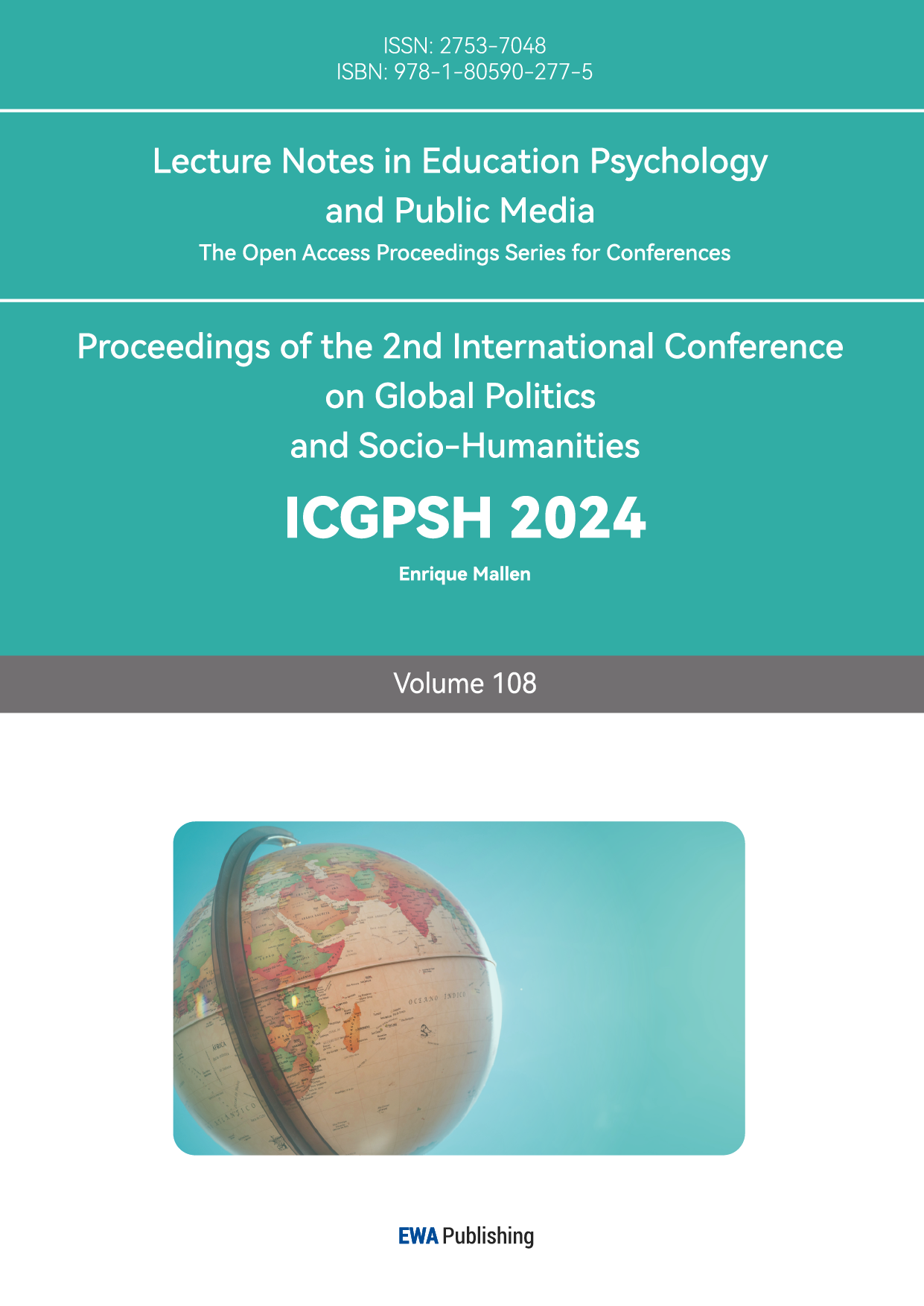References
[1]. Mearsheimer, John. 2001. The Tragedy of Great Power Politics. New York: Norton.
[2]. Ikenberry, G. John. 2011. Liberal Leviathan: The Origins, Crisis, and Transformation of the American World Order. JSTOR. STU - Student edition. Princeton University Press. https: //www.jstor.org/stable/j.ctt7rjt2.
[3]. Finnemore, Martha, and Kathryn Sikkink. "International Norm Dynamics and Political Change." International Organization 52, no. 4 (1998): 887-917.
[4]. Weiss, Thomas. 2016. “Article Rising Powers, Global Governance, and the United Nations.” Rising Powers Quarterly 1 (2): 7–19. https: //rpquarterly.kureselcalismalar.com/wp-content/uploads/2016/12/vol1.2-Thomas-Weiss.pdf.
[5]. Thomas George Weiss. 2016. What’s Wrong with the United Nations and How to Fix It. Cambridge, Uk: Polity.
[6]. Sebastian von Einsiedel, David M Malone, and Bruno Stagno Ugarte. 2022. The UN Security Council in the 21st Century.
[7]. Simma, Bruno. 1999. “NATO, the UN and the Use of Force: Legal Aspects.” European Journal of International Law 10 (1): 1–22. https: //doi.org/10.1093/ejil/10.1.1.
[8]. Chesterman, Simon. 2012. “Just War or Just Peace? Humanitarian Intervention and International Law.” Academia.edu. March 10, 2012. https: //www.academia.edu/1469674/Just_War_or_Just_Peace_Humanitarian_Intervention_and_International_Law.
[9]. Malone, David M, and International Peace Academy. 2004. The UN Security Council: From the Cold War to the 21st Century : [a Project of the International Peace Academy]. London: Lynne Rienner.
[10]. Sellström, Åke. 2021. “Lessons from Weapons Inspections in Iraq and Syria.” AJIL Unbound 115: 95–99. https: //doi.org/10.1017/aju.2021.5.
[11]. Eminue, Okon, and Monday Dickson. 2013. “The United Nations Resolutions on Syria: Exploration of Motivation from Russia and China.” https: //core.ac.uk/download/pdf/234670498.pdf.
[12]. “Richard Gowan on Ukraine and How Russia’s War Reverberates at the United Nations.” 2022. Www.crisisgroup.org. September 20, 2022. https: //www.crisisgroup.org/global/richard-gowan-ukraine-and-how-russias-war-reverberates-united-nations.
[13]. Wippman, David. 2001. “Kosovo and the Limits of International Law.” Fordham International Law Journal 25 (1). https: //ir.lawnet.fordham.edu/cgi/viewcontent.cgi?referer=& httpsredir=1& article=1813& context=ilj& sei-redir=1.
[14]. Marten, Kimberly. 2015. “Putin’s Choices: Explaining Russian Foreign Policy and Intervention in Ukraine.” The Washington Quarterly 38 (2): 189–204.
[15]. Thakur, Ramesh, ed. 2016. “Reforming the United Nations.” Cambridge University Press. Cambridge: Cambridge University Press. 2016. https: //www.cambridge.org/core/books/abs/united-nations-peace-and-security/reforming-the-united-nations/7AEB47EACB40CB391DE78F7F3E910E1C.
[16]. Cui, Shunji, and Barry Buzan. 2016. “Great Power Management in International Society.” The Chinese Journal of International Politics 9 (2): 181–210. https: //doi.org/10.1093/cjip/pow005.
[17]. Allison, Graham T. 2017. “Destined for War?” The National Interest 149 (149): 9–21. https: //www.jstor.org/stable/26557386.



